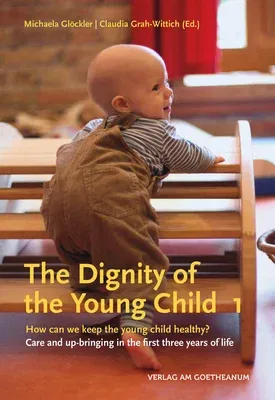New and successful insights for the care and raising of the child in the
first three years of life. The contributions in this book deal with the
process of incarnation in the first three years of life. They highlight
questions concerning the young child--walking, speaking and learning to
think--on the one hand from the viewpoint of anthroposophic knowledge of
the human being, and on the other hand from research by Emmi Pikler.
- How can the young child be given enough free space to best unfold its
innate capacities for the future?
- How can the child's autonomous will to learn be supported and
promoted, so that its personality can develop on the basis of trust
and security?
- How can the relationship skills of the young child be formed by
attentive and trusting togetherness in care situations, as
prerequisite to be freely active.
- How should the surrounding of the little child be designed, also with
regard to the self-education and self-development of the parents and
educators, so that the child can experience being by itself and then
again in connection with its surroundings?
The answers to these four essential questions correspond to the current
state of knowledge and practical experience. To optimally support
children in their development in a world that is often not
child-friendly, the interdisciplinary combination of
medical-psychological-pedagogical research has proven to be particularly
fruitful and forward-looking.
(Published in coordination with the Association of Waldorf
Kindergartens and the Medical Section at the Goetheanum.)

